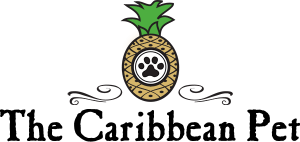- Currency: Jamaican Patois and Jamaican English
- Temperature: Average 82°F year-round
- Square Miles: 4,400 Approx.
- Population: 2.6 million
ABOUT. Spanish settlers first came to Jamaica, then the British.The island – discovered by Christopher Columbus in 1494 – was settled by the Spanish early in the 16th century. The native Taino, who had inhabited Jamaica for centuries, were gradually exterminated and replaced by African slaves. England seized the island in 1655 and established a plantation economy based on sugar, cocoa, and coffee. The abolition of slavery in 1834 freed a quarter million slaves, many of whom became small farmers. Jamaica gradually increased its independence from Britain. In 1958 it joined other British Caribbean colonies in forming the Federation of the West Indies. There were several slave uprisings over the years, but it wasn’t until 1962 that Jamaica achieved independence from the UK. Since then, it has developed one of the largest tourist industries in the Caribbean. Jamaica is the third largest island in the Caribbean, and gained full independence when it withdrew from the Federation in 1962.
Over 1 million tourists visit Jamaica every year. It is an island of beautiful beaches, mountain jungles, and waterfalls. Kingston, the capital city, is on the south shore of the island. Jamaica, a Caribbean island nation, has a lush topography of mountains, rainforests and reef-lined beaches. The longest mountain range in Jamaica is called the Blue Mountains. Blue Mountain Peak is the highest point on the island at 2256 metres (7402 feet). Jamaica has a tropical climate with high temperatures and humid weather and prone to damage caused by hurricanes. Jamaica has 8 native snake species but none of them are poisonous. In Jamaica they drive on the left-hand side of the road.
Jamaica exports agricultural products such as bananas, coffee and sugar. Jamaica has a high level of crime. Reggae music originated in Jamaica, home of well known musician Bob Marley. Jamaica produces many athletes in track & field where athletes such as Usain Bolt, Johan Blake and Shelly-Ann Fraser-Pryce have excelled. Jamaica is also known for its bobsled team that competes in the Winter Olympics.
Although Reggae is commonly used to define Jamaica’s music, the island’s traditional or folk music is rich – heavy with the substance of African rhythms and collective experiences – and has continued to evolve into an extraordinary legacy. Drawing from several different influences, our music reflects the tides of the time with the sounds and rhythms, each possessing its own distinctive beat. Jamaica is famed as the birthplace of reggae, and its capital Kingston is home to the Bob Marley Museum, dedicated to the city’s most famous singer. Folk is the earliest music form in Jamaica and remains one of the most influential aspects of its heritage.

